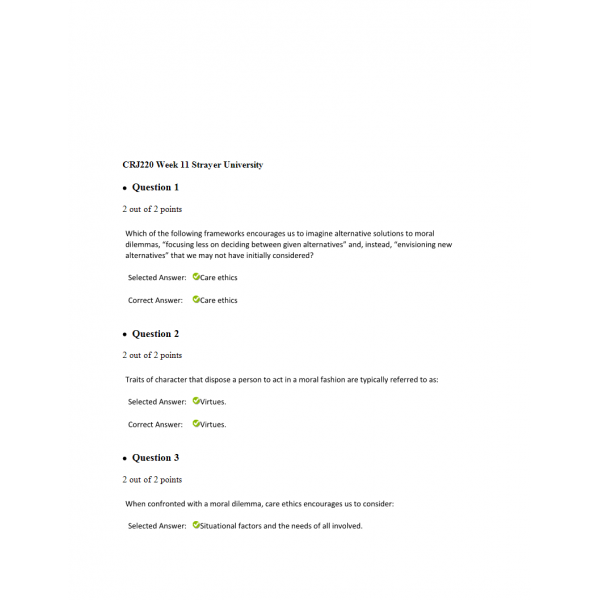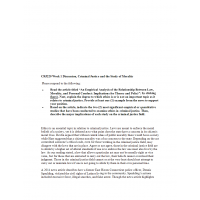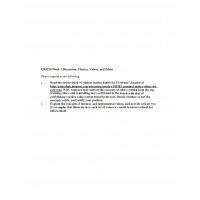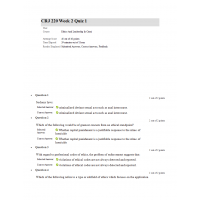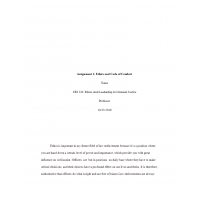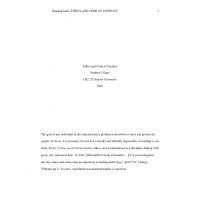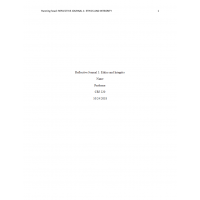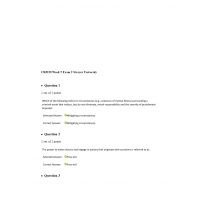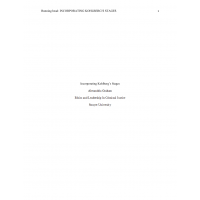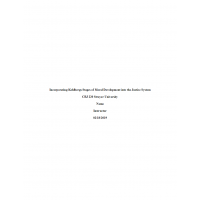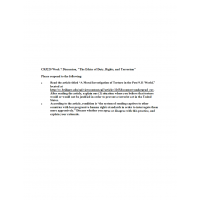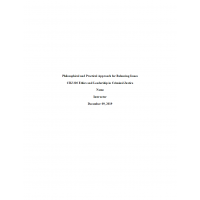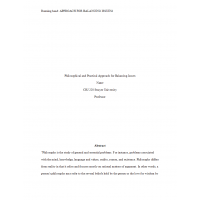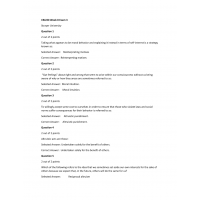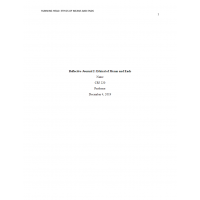CRJ 220 Week 11 Quiz 4 with Answers
CRJ 220 Week 11 Quiz 4
1. Which of the following frameworks encourages us to imagine alternative solutions to moral dilemmas, “focusing less on deciding between given alternatives” and, instead, “envisioning new alternatives” that we may not have initially considered?
2. Traits of character that dispose a person to act in a moral fashion are typically referred to as:
3. When confronted with a moral dilemma, care ethics encourages us to consider:
4. Which of the following is a key Aristotelian idea that describes a midpoint between extremes of excess and deficiency?
5. Aristotle's ethics was teleological, meaning:
6. Which of the following is NOT one of the universal conditions of human flourishing outlined in your text?
7. Which of the following is an approach to justice which focuses on repairing harms through processes involving the offender, victim, and community?
8. According to Aristotle, human beings are different from all other living things because of our:
9. Which of the following comes closest to what Aristotle regarded as the highest human good?
10. Which of the following would be considered biogenic needs?
11. What is a key indicator of a narrow-minded person?
12. Assumptions are always:
13. A democratic fallacy occurs where we appeal to majority belief to justify a decision or belief.
14. An ethical life involves thinking dichotomously.
15. Good beliefs and decisions require that the reasons that led to making the decision are true and acceptable, and the conclusion naturally follows from those reasons.
16. It is important to always defend your ideas.
17. Reasoning about ethics requires which of the following?
18. What term does NOT refer to a type of reasoning?
19. Which of the following is an example of reasoning?
20. Which of the following cases violates the principle of universalizability?
21. Which of the following is NOT a utilitarian method of reaching conclusions?
22. What is an option to consider when duties and obligations conflict?
23. Rule Utilitarianism addresses problems that arise when otherwise morally undesirable actions might produce good consequences.
24. Instrumental goods outweigh intrinsic goods.
25. Kantianism states that it is not the consequences of our actions with which we should be concerned, but rather the actions themselves.
26. Deciding with consequences means predicting the likely consequences of different decisions or courses of action and choosing that which produces the greatest balance of good over bad.
27. Virtues are morally desirable traits of character.
28. What are virtues?
29. What does it mean to “decide with duties”?
30. Which of the following is NOT one of Ross’s Prima Facie Duties?
| Institution & Term/Date | |
| Term/Date | Strayer |
-
$20.00

